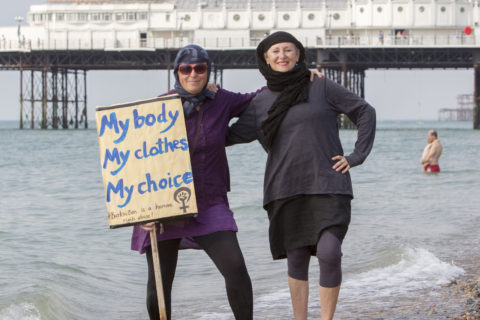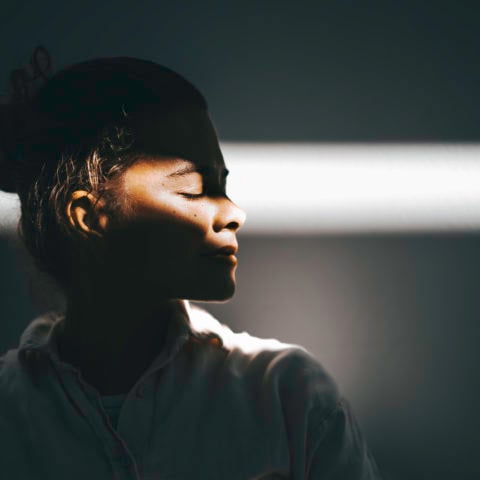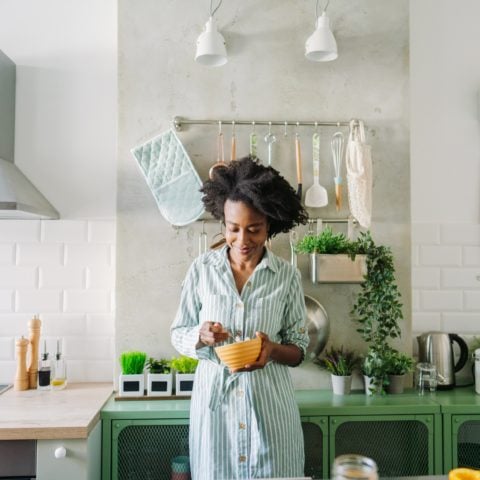Canadian Women Open Up About the Cultural or Religious Traditions That Make Baring Skin Tricky in the Summer
For a significant number of Canadians, baring skin in summer can be complicated. Maryam Siddiqi talks to women navigating two (or more) cultures.
Abeer Matar*’s family moved to Montreal from the United Arab Emirates when she was 12, and her parents didn’t allow her to wear shorts or other revealing clothing. Now 24, she lives in Toronto, where she works at Bikini Village. She wears a swimsuit at the beach and shorts from time to time, but not when she’s with them. Her mother has come to accept her daughter baring more of her body, but her father still doesn’t know she wears a bathing suit in public, and she doesn’t think she’ll tell him. “I don’t want to hurt his feelings,” she explains. “Because maybe he’s against it.”
Matar doesn’t consider herself very religious, though she says, “There are some aspects [of Islam] that I really respect and follow.” In her 18 months with Bikini Village, she has helped religious customers find swimwear, though she admits they don’t come in often. “When Muslim women come, most of the time they buy bathing suits because they have a swimming pool in their community that’s just for women.”
Summer isn’t so much a season in Canada as it is an event—something we mark on our calendars and count the days till its arrival. Many Canadian women long to feel the warmth of the sun on their bodies, to have golden shoulders and tan lines. But for a growing number, including Matar, showing skin is complicated by cultural or religious traditions.
About 200,000 immigrants arrive in this country each year, and from 2001 to 2006, 69 per cent of them were from the Middle East, Asia and Africa, many from conservative religious backgrounds. These newer Canadians will probably enjoy afternoons at the beach, picnics at the park and dips in the pool, but many of them will be navigating the season with a set of rules that are more intricate and stringent than simply applying SPF30 every few hours.
Esther Goldberger is one of those recent immigrants. Born in Sao Paulo, Brazil, she converted to Orthodox Judaism before moving to Montreal in 2007 at the age of 30 to be with her Jewish husband, whom she met online. “In Brazil, I was a regular Brazilian, showing a lot of skin,” she says. “Everything was sleeveless, everything had strings.” After her conversion, summers in long sleeves, high necklines and below-the-knee skirts were a big challenge. She describes it as “just suffocating. You cannot breathe, you cannot walk, you cannot concentrate. I spent the summers inside, wherever there was air-conditioning.”
Two years ago, to cope with the heat, Goldberger started making her own lightweight sundresses. (Other Orthodox Jewish women started requesting them, so she’s launching her own line, Dellasuza.) “I didn’t want to spend my summers inside, going out only at night like a vampire,” she says. “Now I feel like a normal person. I can go out to have an ice cream and visit friends.”
Naheed Mustafa, a 42-year-old freelance journalist based in Toronto, is Muslim. She wore a hijab, a veil or scarf that covers the head and neck, as well as long-sleeved tops and pants or long skirts, from her early 20s to her mid-30s. It didn’t prevent her from being social and active. “I didn’t mind playing tennis, but it does get hot,” she says. “Anyone who tells you it doesn’t get hot is a liar.”
Despite no longer covering up for religious reasons, Mustafa still doesn’t reveal much skin. “The shortest sleeve I’ll wear is probably to my elbow,” she says. “I don’t wear shorts. Conservative dress is just ingrained in me. I’m not at all comfortable in anything revealing.”
Some women who straddle two (or more) worlds have the wardrobes to match. Born in Trinidad, Nadia Khan now lives in the Toronto suburb of Brampton with her husband, a Sikh who converted to Islam, and their three-year-old son. Despite not being as religious as her Muslim parents, she’s still influenced by their beliefs. “With my parents, before I was married, I wasn’t really allowed to wear shorts,” says the 27-year-old. “Although in the back of my mind I know I want to wear them, I feel very uncomfortable.”
Khan dresses differently when spending time with her parents, her in-laws or her husband and friends. “Most people would love to have multiple closets,” she jokes. When she’s with her Muslim parents, she dresses in a way that’s respectful of their beliefs, which means no form-fitting clothing; it’s not enough to be covered up. “You can’t show your shape,” she says. But with her Sikh in-laws, “I can wear a sari with my boobs and my bum hanging out, and that’s totally appropriate.”
Her husband’s attitude is laissez-faire. “Religiously, your husband is the one you’re supposed to be [covering up] for,” she says. “But he grew up in Canadian society, where you wear whatever you want. And he feels that the way you appear is the way you feel about yourself. So if you’re covered up all the time, you’re going to feel depressed.”
According to Boston-based author and media critic Dr. Jean Kilbourne, whose work focuses on the image of women in advertising and the media, it’s vital to feel comfortable in one’s skin—whether or not it’s on display. “There is a wide variety of norms in North America because of the different ethnicities here…[but] the female body is still seen as something to flaunt,” she says, adding that most women living here are exposed to popular culture and feel pressure “to wear a skimpy bathing suit.” Regardless of background or beliefs, she stresses that “It’s important for women to think about how much of whatever they do is their choice: ‘Is this really my choice to diet to look good in summer, or to cover up?’”
Covered or not, these women all say they dress as they do because they want to, despite the practicalities of doing so on a hot day. “All those years of being very covered up, I did feel a strong sense of comfort,” Mustafa says. “I don’t regret one second of having worn [the hijab].”
Goldberger also says she feels more comfortable in full-coverage clothing. “I have more freedom to walk around and not be harassed by any guy, especially during summer. And when I talk to people, I think my voice has more impact. I feel like people really listen because they don’t have the distraction of my body.”
And while they may not spend their summers in mini-dresses and bikinis, not one of these women feels she isn’t getting the most out of the season or expressing her personal style. “Fashion is what you make it,” says Khan. “I think that you can be covered up and beautiful.”
*Name has been changed.









